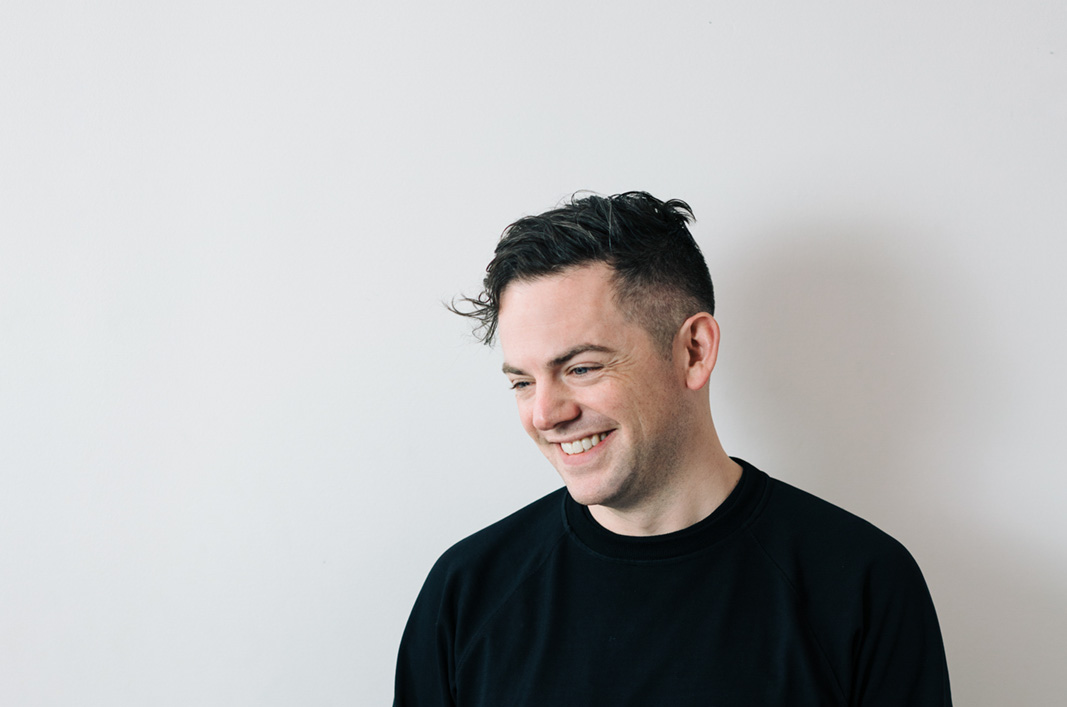Q&A: Composer discusses collaboration, creative process of upcoming three-part concert

Composer Nico Muhly will deliver a three-part performance at The Theatre at Ace Hotel on Friday. The concert is hosted by the Center for the Art of Performance at UCLA.
(Courtesy of Heidi Solander)
"Nico Muhly: Archives, Friends, Patterns"
Today
The Theatre at Ace Hotel
$15 for students
By Cameron Vernali
May 9, 2019 10:50 p.m.
Nico Muhly’s performance piece may be in three parts, but it is not fractured.
The composer has created works that include classical pieces and film soundtracks, and will deliver a three-part performance, “Archives, Friends, Patterns,” at The Theatre at Ace Hotel on Friday. The first part of the concert, hosted by the Center for the Art of Performance at UCLA, contains two-piano transcriptions of Indonesian gamelan music created with composer Thomas Bartlett. The second is a rearrangement of works from composer Philip Glass’ catalog, while the third contains Muhly’s drone-based compositions.
The Daily Bruin’s Cameron Vernali spoke with Muhly about his pathway into music, discussing the differences between creating music for friends and for strangers.
[RELATED: Ensemble showcases Jewish composers’ impact on Hollywood music]
Daily Bruin: How did you get interested in music?
Nico Mulhy: When I was a kid, I played piano and … I was also singing in a boys’ choir. This is all in Providence, Rhode Island. Something happened when … I realized that these two different forms of music-making were private and publicly team-based. I just latched onto them both and I started taking both a lot more seriously and thinking, “What would it be like (if) instead of interpreting something, I actually started to play around?” That’s how I got started.
DB: Your catalog ranges from film soundtracks to classical compositions. When you decided you wanted to go into music, were you open to many forms or did you have one in mind?
NM: The fact that I collaborate a lot and the fact that I do many different things, to me, doesn’t feel unnatural. It feels like a natural extension of how I make music. I make music with my friends, the people I’m around. I never treat it as two different universes of music-making.
What it is, though, is that everyone has their origin story. You’re always from somewhere. At a certain point, you realize that … you can go wherever you want. I’m from the notated music tradition, I write for large and small classical organizations, but also … my friends make music that isn’t necessarily classical. There’s a lot of possibilities.
DB: “Archives, Friends, Patterns” is in three parts. Is this a new format for you?
NM: I’ve never played a concert this long and it’s a strange feeling to pack so much into an evening. … In this particular case, (it’s) the collaboration between me and the larger curators. Not all the music is by me. One set is completely by Philip Glass, one set co-written by Thomas Bartlett and me, one little set by me. That (collection), to me, is a very good portrait of not only me but my community, which felt to me the spirit that this evening is made in.
[RELATED: Q&A: Cellist Deborah Pae talks upcoming upcoming master class at UCLA, career influences]
DB: What is it about Glass and Bartlett that you find encapsulating of your community?
NM: I worked for (Glass) for a long time from 1999 to 2006 or 2007. (Glass) and (Glass’) music are a really important part of my DNA. It’s just something that comes built into being a musician for me. What cool’s about (Glass’) music in this is that he wrote a lot of music for his own ensemble, (that) was (made up of) his friends. It wasn’t music for strangers at all. It was for six or seven other people in a communal fashion. What I’ve done is rearranged that music for my friends, so it’s a nod to the spirit of how he makes music.
With (Bartlett), it’s the most tightly bundled set of things. It’s music that we co-wrote, so it’s unclear where one thing begins and one thing ends. It’s music that is based on a historical piece of music, which itself is based on transcriptions of gamelan, and built into all that is the history of that piece and the history of my collaboration with (Bartlett).
DB: Is there a difference in participating in pieces that were created for strangers versus pieces that were created for friends?
NM: It’s very strange. Composers feel an emotion that is unique in the world – when you are sitting in an audience, watching people do this thing that you’ve written down on a page. It’s an out-of-body experience (of composing) something that once existed only in your head and once existed as a piece of paper and once existed as a sketch. Suddenly, there are all these people realizing it. It’s particularly strange for an opera – it’s like 200 people reacting to this thing you made. Whereas making music in a more communal setting, it’s really fun because it feels less formal than a concert in which I have less control. So weirdly, having more control gives it an air of informality that I think is really fun. I hope (that “Archives, Friends, Patterns”) feels like being invited to a dinner party and you know some of the people there and you don’t know some people and you just have the best time.


